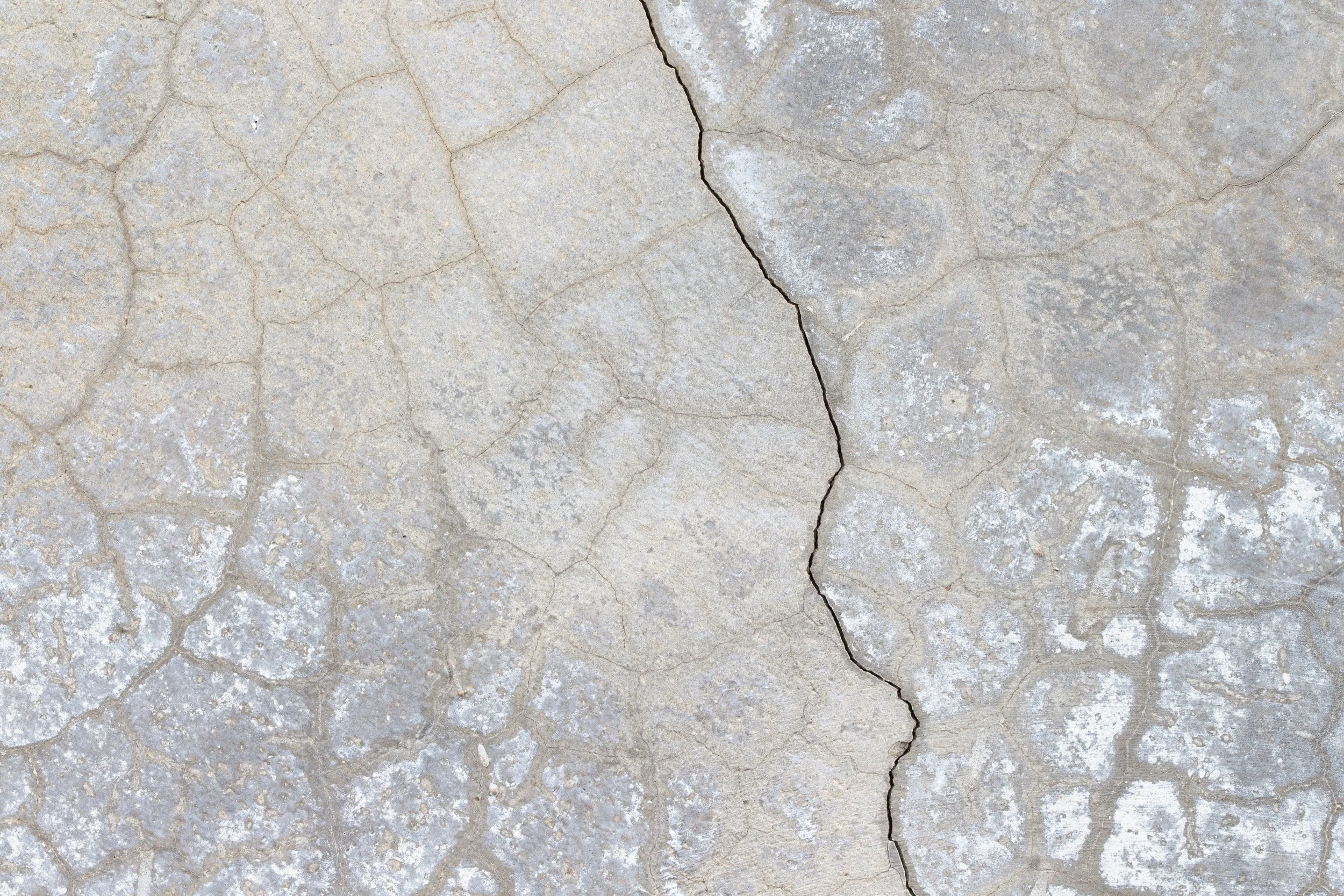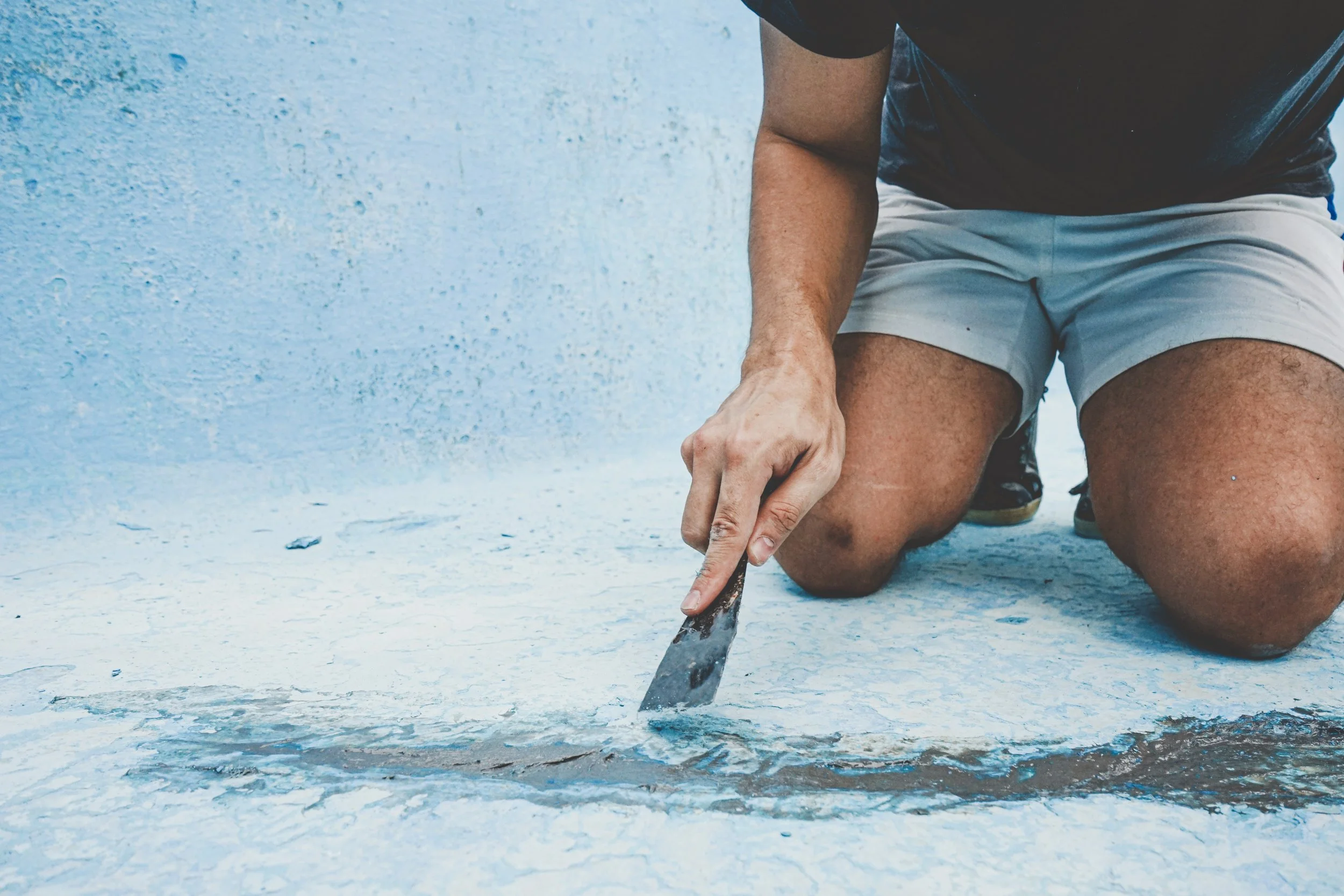
Fixing Tile Grout Issues for Custom Pools in North Texas
Maintain Perfect Conditions
When it comes to custom pools, tile grout is not only essential for aesthetic appeal but also for the structural integrity and durability of your pool. Over time, however, grout can become worn, cracked, or discolored due to environmental factors, wear and tear, and exposure to the elements. In North Texas, where extreme temperatures and weather fluctuations can take a toll, it's essential to keep an eye on your pool’s tile grout to maintain its appearance and function. Here’s everything you need to know about fixing tile grout issues in your custom pool.

Signs of Tile Grout Problems
Tile grout issues can arise from a variety of factors, especially in North Texas, where the weather can be harsh on outdoor features. Common signs of grout problems include:
Cracking of Chipping Grout
As temperatures fluctuate between extreme heat in the summer and freezing cold in the winter, grout can crack and break apart.
Discoloration or Staining
Pools that receive heavy use or are exposed to harsh chemicals may experience grout discoloration or staining. Algae, mold, and mildew can also contribute to unsightly marks.
Loose or Missing Tiles
If grout is deteriorating or absent, tiles may become loose, potentially causing them to dislodge or fall off.
Water Leaks
Inadequate grout around tiles can lead to water seeping behind the pool’s surface, causing structural damage and increasing maintenance costs.
Causes of Tile Grout Issues in North Texas Pools
Several factors contribute to grout problems in custom pools in North Texas:
Temperature Extremes
North Texas is known for its wide-ranging temperature swings, with scorching hot summers and freezing winters. These extreme variations can cause the grout between pool tiles to undergo constant expansion and contraction. The heat of summer can cause the grout to soften slightly, while the cold of winter can cause it to harden and crack. Over time, these cycles of expansion and contraction weaken the grout, leading to fissures and gaps that allow water to seep through. If not repaired promptly, these cracks can grow, causing more significant structural damage, including the loosening of tiles.
Chemical Imbalancing
Maintaining the correct chemical balance in your pool is essential not only for water quality but also for the preservation of your pool’s components, including the grout. High levels of chlorine or other harsh chemicals can erode grout over time, leading to discoloration, weakening, and eventual breakdown. If the chemical balance is too acidic or too alkaline, it can further degrade the grout, causing it to become porous and prone to cracking. The chlorine in particular can react with the grout, breaking down the materials and leading to a loss of its integrity. Pool owners in North Texas should regularly monitor their chemical levels and adjust them as needed to ensure the longevity of their pool’s grout.
Exposure to UV Rays
The hot, intense sunlight in North Texas can take a toll on your pool’s grout over time. Prolonged exposure to ultraviolet (UV) rays causes many materials to degrade and weaken, and grout is no exception. Over time, UV rays can cause grout to fade, discolor, or lose its integrity. This is particularly noticeable with lighter-colored grout, which can turn yellowish or dull. UV rays break down the chemical bonds in the grout, causing it to become brittle and prone to cracking. In areas with particularly high sun exposure, such as pools that are exposed for most of the day, grout can weaken much faster. This is why it’s important to maintain your pool with regular cleaning and sealing, especially in areas that are constantly in the sun.
Soil Shifting
Expansive soil is a common issue in many areas of North Texas. This type of soil is made up of clay, which expands when it gets wet and contracts as it dries. This shifting of soil beneath your pool can create pressure on the pool’s foundation, which in turn can stress the grout between tiles. When the ground underneath shifts, the grout may crack or loosen, allowing water to get behind the tiles. Over time, this can lead to even more significant damage, such as tiles loosening or falling off entirely. In some cases, the shifting soil can even cause the pool structure itself to settle, which exacerbates grout issues and may require expensive repairs.
Proper Installation
One of the most preventable causes of grout issues is improper installation. If grout is not applied correctly or fails to be properly sealed during installation, it can begin to break down more quickly than expected. For example, if the grout is applied too thinly, it may not bond properly with the tiles, leading to gaps and cracks. Similarly, if the grout isn’t sealed properly, moisture can seep in and weaken the material, leading to discoloration and deterioration. Proper installation ensures that the grout is applied evenly, securely, and sealed tightly to prevent water infiltration. If you suspect that the grout was improperly installed, it's best to consult a professional to assess and fix the issue before it worsens.
Frequency of Cleaning
Another significant factor that can contribute to grout issues in your North Texas pool is the frequency of pool use and the regularity of cleaning and maintenance. The more frequently a pool is used, the more stress is placed on the grout. Foot traffic, the introduction of oils, lotions, and dirt from swimmers, as well as the buildup of organic matter like leaves or debris, can wear down grout over time. When the grout gets saturated with dirt, oils, or chemicals, it becomes more prone to cracking, discoloration, and breakdown. Additionally, pools that aren't cleaned regularly may experience an accelerated buildup of minerals, which can cause grout to deteriorate.
Why You Should Address Grout Issues Promptly
Ignoring grout issues can lead to expensive problems. Damaged grout allows water to seep behind tiles, potentially weakening the pool's structure and causing costly repairs. It can also lead to increased maintenance costs, as cracks can trap dirt, debris, and algae, making cleaning more difficult. Additionally, aesthetic issues like discoloration or staining can make your pool look neglected. Addressing grout problems early helps preserve both the functionality and appearance of your custom pool.
Preventing Tile Grout Issues in North Texas
Regular maintenance can extend the life of your grout and reduce repair costs. Clean your pool tiles and grout regularly to prevent buildup of dirt, algae, and minerals. Maintain a proper chemical balance to protect grout from erosion and staining. Apply grout sealer every few years to safeguard against moisture and chemicals. Lastly, schedule professional inspections to catch minor issues before they worsen. Proactive care helps keep your pool's grout in top shape and minimizes the need for costly repairs.
How to Fix Tile Grout Issues in Your Custom Swimming Pool
If you’re noticing grout issues in your North Texas custom pool, it’s important to address them quickly to prevent further damage. Here’s how to fix common tile grout problems:
Cleaning & Sealing Grout
Deep Cleaning
For discolored grout, begin by thoroughly cleaning it using a mild pool tile cleaner or a specialized grout cleaner. Avoid harsh chemicals that could further damage the grout or the tiles.
Sealing
After cleaning, consider applying a grout sealer. This will help protect the grout from moisture, pool chemicals, and future staining. Sealing also helps prevent mold and mildew growth, which can be an issue in humid conditions.
Replacing Loose or Missing Tiles
Tile Replacement
If tiles have become loose or are missing, carefully remove the damaged tile and replace it with a new one. Reapply grout around the edges and ensure it is level and well-secured.
Tile and Grout Matching
When replacing tiles, try to match the existing tiles and grout as closely as possible to maintain the aesthetic of your pool. If you can’t find an exact match, consider updating the entire tile design for a fresh look.
Regrouting & Replacing Damaged Grout
Regrouting
If your grout is cracked or has large gaps, regrouting may be necessary. Begin by removing the old grout using a grout saw or scraper, making sure to clear all debris from between the tiles.
Applying New Grout
Choose a grout that is designed specifically for pools and is resistant to water, mold, and pool chemicals. Apply the new grout carefully, pressing it firmly into the joints between the tiles. Allow it to cure fully before using the pool.
Fixing Leaks Caused by Grout Failure
Identifying Leaks
If you suspect that grout failure has caused water leaks, the issue might be more serious than cosmetic repairs. In this case, professional assistance is recommended to prevent further water loss or damage to the pool structure.
Leak Repair
A professional pool technician can assess and repair the leak, which may involve regrouting or applying a waterproof sealant to prevent future leakage.
Why Choose Foley Pools for your Grout Repairs?
Decades of Experience
We tailor our solutions to address temperature extremes and other local factors that can affect grout longevity, ensuring long-lasting results for your custom pool.
Comprehensive Services
We offer regular maintenance services, including grout cleaning, sealing, and chemical balance management, to help prevent future grout problems.
Expert Installation
Our experienced team uses high-quality materials and techniques to ensure that your pool's grout is durable and properly sealed, preventing further damage.

Common Questions About
Fixing Tile Grout Issues
-
Grout can crack due to temperature extremes, shifting soil, chemical imbalances, or improper installation. In North Texas, where hot summers and freezing winters are common, grout expands and contracts, leading to cracks over time. Additionally, shifting soil beneath the pool or high levels of pool chemicals can further contribute to grout damage.
-
Signs that grout may need repair include visible cracks, chips, discoloration, or loose tiles. If you notice water leaks behind the tiles or increased debris and algae buildup in grout lines, it’s time to address the issue before it worsens.
-
To fix cracked grout, you'll need to remove the old grout, clean the area, and apply fresh grout designed for pool use. It’s crucial to ensure the new grout is properly sealed to prevent moisture from seeping behind the tiles. In some cases, professional help may be needed for the best results.
-
Yes, regular cleaning, maintaining a proper chemical balance, and applying grout sealer every few years can prevent grout damage. Routine maintenance helps protect grout from moisture, dirt, and chemicals that can lead to degradation. Additionally, scheduling annual professional inspections can catch potential issues early.
-
Grout can discolor or stain due to a build-up of dirt, algae, or pool chemicals like chlorine. Prolonged exposure to UV rays from the sun can also cause grout to fade. Keeping the grout clean and using a grout sealer can help maintain its color and prevent staining.
-
Grout doesn’t need to be replaced frequently, but it should be inspected regularly. If you notice cracks, looseness, or significant discoloration, it may be time to replace it. On average, grout can last anywhere from 5 to 10 years with proper care, but this varies depending on your pool’s usage and maintenance.
-
Neglecting grout issues can lead to structural damage, as water may seep behind the tiles and weaken the pool's foundation. It can also result in increased cleaning and maintenance costs, as dirt and algae can accumulate in cracked grout. Visually, your pool may appear worn and neglected.
-
To maintain your pool grout, regularly clean the tiles and grout lines to prevent buildup of dirt, algae, and minerals. Maintain proper chemical levels in your pool, apply grout sealer every couple of years, and schedule professional inspections to catch minor issues early. Proper care will help extend the life of your grout and reduce the need for expensive repairs.
Let Us Help
•
Let Us Help •
Dealign with Tile Grout Issues?
At Foley Pools, we specialize in fixing tile grout problems and ensuring your custom pool remains beautiful and functional. Whether you're dealing with cracked grout, discoloration, or loose tiles, our expert team can provide the solutions you need. Don't wait for small issues to turn into costly repairs.
Ready to fix your tile? Contact Foley Pools today to schedule an inspection or repair.







